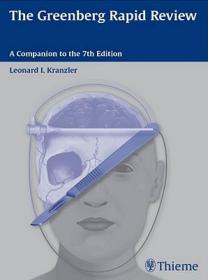
现货Handbook of Embodied Cognition and Sport Psychology[9780262038508]
¥ 701 九五品
库存3件
作者Cappuccio, Massimiliano L
出版社MIT Press
ISBN9780262038508
出版时间2019-01
装帧精装
纸张其他
页数808页
正文语种英语
上书时间2024-03-27
- 最新上架
商品详情
- 品相描述:九五品
- 商品描述
- The first systematic collaboration between cognitive scientists and sports psychologists considers the mind–body relationship from the perspective of athletic skill and sports practice.This landmark work is the first systematic collaboration between cognitive scientists and sports psychologists that considers the mind–body relationship from the perspective of athletic skill and sports practice. With twenty-six chapters by leading researchers, the book connects and integrates findings from fields that range from philosophy of mind to sociology of sports. The chapters show not only that sports can tell scientists how the human mind works but also that the scientific study of the human mind can help athletes succeed. Sports psychology research has always focused on the themes, notions, and models of embodied cognition; embodied cognition, in turn, has found striking confirmation of its theoretical claims in the psychological accounts of sports performance and athletic skill. Athletic skill is a legitimate form of intelligence, involving cognitive faculties no less sophisticated and complex than those required by mathematical problem solving.After presenting the key concepts necessary for applying embodied cognition to sports psychology, the book discusses skill disruption (the tendency to “choke” under pressure); sensorimotor skill acquisition and how training correlates to the development of cognitive faculties; the intersubjective and social dimension of sports skills, seen in team sports; sports practice in cultural and societal contexts; the notion of “affordance” and its significance for ecological psychology and embodied cognition theory; and the mind''s predictive capabilities, which enable anticipation, creativity, improvisation, and imagination in sports performance.
相关推荐
-

killer poker hold'em handbook
八五品镇江
¥ 50.00
-

现货 Handbook of Neurosurgery
九五品上海
¥ 785.00
-
![现货 Handbook of Stroke[9781975114374]](https://www0.kfzimg.com/sw/kfz-cos/kfzimg/17733071/44b29807d2f0b8b5_s.jpg)
现货 Handbook of Stroke[9781975114374]
九五品上海
¥ 564.00
-
![现货Handbook of Plasticizers[9781774670224]](https://www0.kfzimg.com/sw/kfz-cos/kfzimg/17733071/28847b16be6ac859_s.jpg)
现货Handbook of Plasticizers[9781774670224]
九五品上海
¥ 3213.00
-
![现货Handbook of Fisheries[9781682867242]](https://www0.kfzimg.com/sw/kfz-cos/kfzimg/17733071/da3852f684b588b3_s.jpg)
现货Handbook of Fisheries[9781682867242]
九五品上海
¥ 1282.00
-
![现货Handbook of Psychodermatology[9789386056887]](https://www0.kfzimg.com/sw/kfz-cos/kfzimg/17733071/35c80ed8b482f12b_s.jpg)
现货Handbook of Psychodermatology[9789386056887]
九五品上海
¥ 244.00
-
![现货Handbook of Probability[9780470647271]](https://www0.kfzimg.com/sw/kfz-cos/kfzimg/17733071/a5ce7f6899b175b5_s.jpg)
现货Handbook of Probability[9780470647271]
九五品上海
¥ 1697.00
-
![现货Handbook of Neuroanesthesia[9781605479651]](https://www0.kfzimg.com/sw/kfz-cos/kfzimg/17733071/a6db4702031d88ae_s.jpg)
现货Handbook of Neuroanesthesia[9781605479651]
九五品上海
¥ 646.00
-
![现货Handbook of Morphometrics[9781682504963]](https://www0.kfzimg.com/sw/kfz-cos/kfzimg/17733071/7b00891fbd8a15d8_s.jpg)
现货Handbook of Morphometrics[9781682504963]
九五品上海
¥ 1616.00
-
![现货 Handbook of Bionanocomposites[9789814774826]](https://www0.kfzimg.com/sw/kfz-cos/kfzimg/17733071/1366571517a5bd4e_s.jpg)
现货 Handbook of Bionanocomposites[9789814774826]
九五品上海
¥ 1402.00
— 没有更多了 —
![现货Handbook of Embodied Cognition and Sport Psychology[9780262038508]](https://www0.kfzimg.com/sw/kfz-cos/kfzimg/17733071/60a710c4db3e8fd1_b.jpg)

![现货Materials and Technologies of Modern Production[9783036401683]](https://www0.kfzimg.com/sw/kfz-cos/kfzimg/17733071/5fd2824531e165d7_s.jpg)
![现货Introduction to Container Ship Operations and Onboard Safety[9781032155425]](https://www0.kfzimg.com/sw/kfz-cos/kfzimg/17733071/58b7ff43ef7909ee_s.jpg)
![现货Electrophosphorescent Materials and Devices[9789814877343]](https://www0.kfzimg.com/sw/kfz-cos/kfzimg/17733071/18cc1d77bcb7b488_s.jpg)
![现货Organic Semiconductors for Optoelectronics[9781119146100]](https://www0.kfzimg.com/sw/kfz-cos/kfzimg/17733071/24c85a750c708964_s.jpg)
![现货Advances in Food Rheology and Its Applications[9780081004319]](https://www0.kfzimg.com/sw/kfz-cos/kfzimg/17733071/e0c11603c9119d4d_s.jpg)
![现货Advanced Materials and Sustainable Technologies[9783035727562]](https://www0.kfzimg.com/sw/kfz-cos/kfzimg/17733071/dced675333874c48_s.jpg)
![现货Advanced Materials and Manufacturing Engineering II[9783035712681]](https://www0.kfzimg.com/sw/kfz-cos/kfzimg/17733071/660ccfae75fa8d3e_s.jpg)
![现货Materials in Machinery and Construction[9783035718119]](https://www0.kfzimg.com/sw/kfz-cos/kfzimg/17733071/6f402060775e9daa_s.jpg)
![现货Cereal Grain Quality (Softcover Reprint of the Original 1st 1996)[9789401071772]](https://www0.kfzimg.com/sw/kfz-cos/kfzimg/17733071/f93ca1c96a97403a_s.jpg)
![现货Handbook of Embodied Cognition and Sport Psychology[9780262038508]](/dist/img/error.jpg)
以下为对购买帮助不大的评价